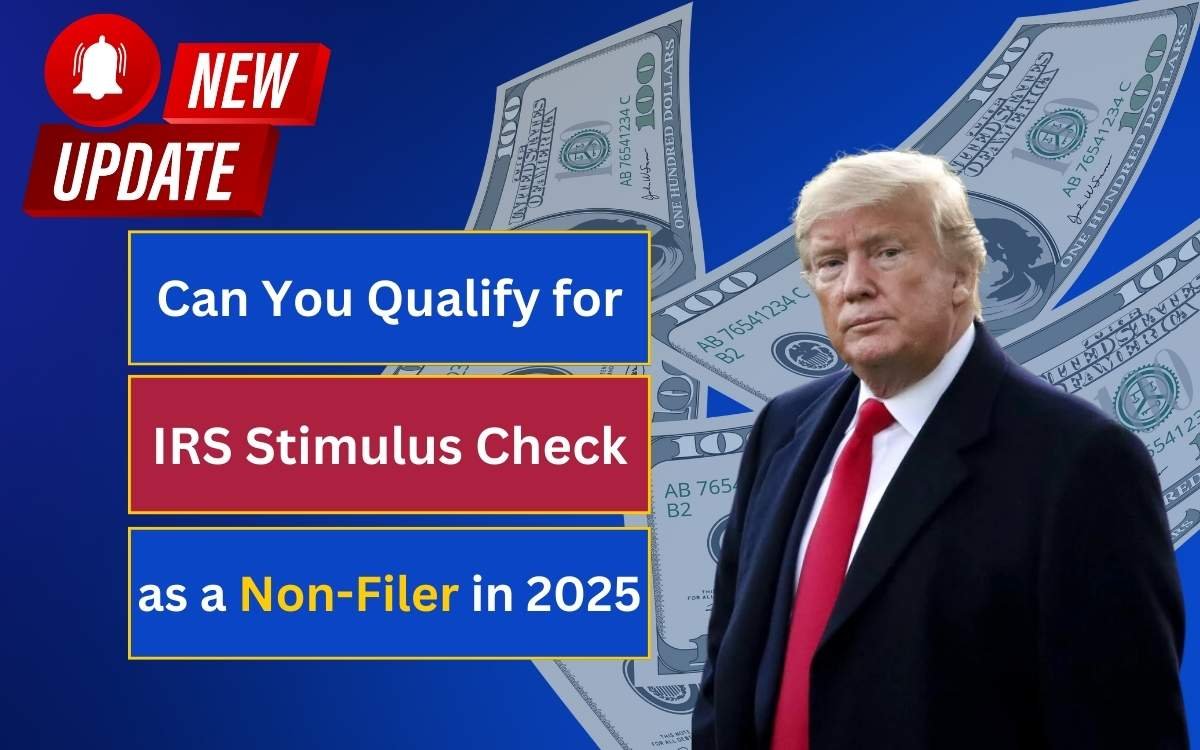Millions of Americans are wondering if they qualify for an IRS stimulus check, especially if they’re non-filers or have unique circumstances. The process can seem overwhelming with confusing eligibility rules and changing requirements. But don’t worry!
This article breaks down everything you need to know in simple terms. If you’re a college student, a retiree or someone with little to no income. we’ll guide you through the steps to check your eligibility and claim any payments you might have missed. By the end, you’ll have a clear path to securing the financial relief you deserve.
Table of Contents
How to know if you qualify for an IRS stimulus check as a non-filer in 2025
Eligibility for stimulus checks is primarily based on your income and tax filing status. The IRS uses your Adjusted Gross Income (AGI) to determine your qualification.
- Single filers: AGI of $75,000 or less for full payment.
- Married couples filing jointly: AGI of $150,000 or less for full payment.
- Heads of household: AGI of $112,500 or less for full payment.
As your income increases, the payment amount decreases. For example, single filers earning over $99,000 or couples earning more than $198,000 typically don’t qualify.
If you haven’t filed taxes in recent years you might still qualify. The IRS introduced a special tool for non-filers to help them claim their payments during previous rounds of stimulus distribution.
Quick Overview Income Limits for Full Stimulus Payments
| Filing Status | Full Payment Limit | Partial Payment Limit | No Payment Limit |
| Single | $75,000 or less | $75,001–$99,000 | Over $99,000 |
| Married Filing Jointly | $150,000 or less | $150,001–$198,000 | Over $198,000 |
| Head of Household | $112,500 or less | $112,501–$136,500 | Over $136,500 |
Citizenship and Residency Requirements
To qualify for a stimulus check you must meet these conditions,
- Be a United States citizen or a resident alien.
- Have a valid Social Security number (exceptions apply to some mixed-status families).
- Not be claimed as a dependent on someone else’s tax return.
Examples of dependents who don’t qualify
- College students claimed by their parents.
- Elderly individuals are listed as dependents.
If you meet these requirements you’re likely eligible for the stimulus payment.
How life changes affect your eligibility
Major life changes can impact your eligibility for a stimulus check. Let’s explore some common scenarios:
Marriage or Divorce: Your filing status might change especially if you are filing jointly with a spouse.
Having a child: A new family member means additional stimulus amounts for eligible dependents.
Income changes: If your income decreases you might qualify based on updated tax filings.
What to do if you missed a stimulus payment
If you were eligible but did not receive your payment or got less than expected. Don’t worry! You can claim the missing amount through the Recovery Rebate Credit when filing your next tax return.
Common reasons for missing payments
- Income exceeds the threshold.
- You are claimed as a dependent.
- You’re a non-resident alien without a valid Social Security number.
How to check your stimulus payment status
The IRS offers tools to help you track your payment and determine eligibility:
| Tool Name | Purpose |
| Get My Payment Tool | Track your payment status and arrival date. |
| Recovery Rebate Calculator | Claim missing stimulus payments. |
Using these tools can simplify the process and ensure you get the financial support you’re entitled to.
Tips for Non-Filers
Non-filers with little to no income should,
- Use the IRS non-filer tool to submit your information.
- Ensure your Social Security number is valid.
- Stay updated on IRS announcements for future stimulus programs.
Take Action Today
Don’t miss out on the financial relief you deserve. Whether you’re a non-filer or have experienced a life change it is crucial to stay informed. Filing your taxes or using the IRS tools can help you secure your payment quickly.
For more information on managing Social Security payments, check out How to Claim your Social Security retirement payment. It offers step by step guidance to ensure you get the benefits you’re entitled to.
FAQs
1. Can non-filers qualify for stimulus checks?
Yes, non-filers with little or no income can still qualify by using the IRS non-filer tool or filing a simple tax return.
2. What happens if I don’t receive my stimulus payment?
You can claim the missing amount using the Recovery Rebate Credit when filing your next tax return.
3. Can I get a stimulus check if I am claimed as a dependent?
No, individuals claimed as dependents on someone else’s tax return are not eligible for stimulus payments.
The final words
Understanding your eligibility for IRS stimulus checks as a non-filer doesn’t have to be complicated. By keeping track of your income, filing status and life changes. You can ensure you are prepared to claim any available payments. Use the tools provided by the IRS to simplify the process and don’t delay taking action.
